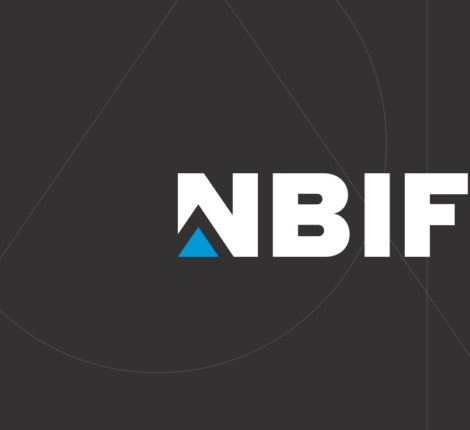- October 25, 2019
- Applied Research
- Comments : 0
10 tips to engage industry partners in your research
Dr. Laura Richard, D. Phil (Oxon)
Before joining NBIF, I spent almost 10 years working as an industrial research scientist behind closed doors in the private sector. I’ll tell you there is lots in common between researchers in industry and in academia: we all follow the scientific method and are driven by questions like ‘Why?’ And ‘How?’. However, there are many differences in how we work, and these can cause friction in an industry-academia collaboration. In the research roles I held both in a spin-out and at a large multinational company, I saw this often when I worked with professors at universities and scientists at research institutes.
I would like to share with you advice that I, an industrial scientist, wish I could have told the academics I worked with, all from the point of view of the physical sciences field:
- It doesn’t matter how interesting the problem is
While “huh, that’s interesting” can be the spark that launches a fruitful line of enquiry, it won’t be enough to engage an industrial scientist. To spark their interest, you’ll need to consider the context (what their company does, competitors, practical concerns) and, most importantly…
- Will this research help the company make money?
If you aren’t doing the research for interest’s sake, then it should be clear that it’s about the money. A company is going to give you, the academic, money, and in return will expect you to do research that helps them make money. It’s a simple cost-benefit analysis – which you’ll frame up together –keeping that consideration at the forefront. If the analysis doesn’t look favourable, consider the other benefits: uniqueness? Cost avoidance? Derisking a potential new technology/innovation by testing it cheaply in a university first?
- It’s ok if the research area is fundamental
You don’t need to be a dyed-in-the-wool applied scientist: in fact, I already have access to those researchers. What I need is deep fundamental insight (e.g. mechanistic analysis, mathematical expertise, theories on the underlying science) to help understand the problem and find a solution. Be willing to stretch your knowledge in order to apply that expertise to a real-world case study.
- Ease of contact establishes credibility
The first step is having a business card: I know its old fashioned, but they are still the most frequent way of solidifying a contact in industry. Seek or contrive a circumstance to visit the company, e.g. to give a seminar. Whilst its an investment in time and money, it shows that the problem is important to you and helps convince management that you are competent and engaged. Secondly, …
- The problem needs to be solved ASAP, and preferably yesterday
Timelines are critical in industry. If we don’t solve this first, our competitor will, and that results in the loss of money… therefore negating the benefits of investing in this research. For example, being told in February that you’ll need to wait until September to have a new student to start work on this project is likely not acceptable.
- The company doesn’t need to know a student will do most of the work
It’s a reality that much of the research work in academia will be done by students, but it’s better not to explicitly announce this as it may cause all kinds of privacy concerns for the companies’ management team. Unless its necessary to know who’s on the project, let them believe you, your research scientists and postdocs are doing all the work.
- Show your capacity to do the work
Provide me, free of charge, with a small proof-of-concept or other demonstration of your capacity to study the problem, it will be so much easier to convince the decision maker to write the cheque. This has proven to work numerous times in persuading management into signing lucrative research contracts with academics. Visualising the potential results is powerful.
- The company will likely be ok with you publishing some the research
Contrary to popular belief, it is likely that not all the research will be top-secret. Sure, there are some commercially sensitive aspects that can’t be disclosed as they are the key to making the company money. However, it’s likely there is lots you can still publish: e.g. results on a dummy matrix or method development work. If the company insists on keeping everything secret, they’ll be willing to pay quite a lot more money for contract research, which can then be taken and used for all kinds of things that public research funding doesn’t cover.
- Respect the industry researchers’ technical competencies and expertise
Most industrial research scientists are highly qualified individuals who have chosen to leave academia for a variety of reasons (job security, money, interested in applied work, pace, etc.) but rarely is it because they ‘couldn’t make it’ in a university setting. However, this is occasionally the view amongst some traditionalists. Likewise, some industrial scientists have a deep scorn for ivory tower professors. An attitude of mutual respect helps enormously to build a relationship.
- Make sure you give the company plenty of opportunities to hear about the research
Finally, no collaboration can happen if the company doesn’t know you exist. Know the habits of an industrial scientist: they read a limited number of academic papers, but probably attend applied conferences in their field, as well as events from their industry association. So, if you want to reach industrial scientists working on catalyst structure at BASF, for example, secure speaking engagements/posters at events like the “International Congress on Catalysis” rather than the “American Crystallographic Association meeting”. You can rely on events like the ICC to find academic collaborators. Bear in mind that industrial scientists are often not able to present at conferences, so look at the list of participants and which companies they are from and decide in advance how your research might interest them and how you might pitch it.
Finally, our team at NBIF has many combined years of experience in facilitating industry-academic relationships. Reach out to us if you want to learn more and start something exciting.


